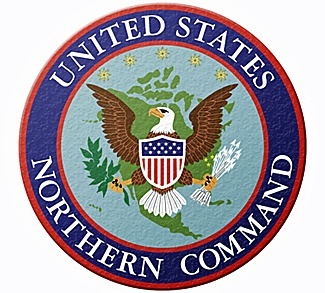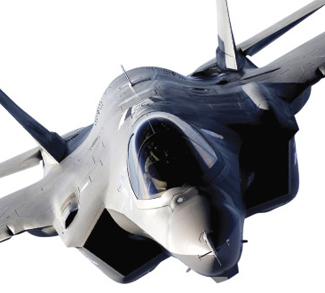Two years after the assassination of President Jovenel Moïse, political upheaval and gang violence has all but crippled the Haitian state. Despite calls for unilateral military intervention, US President Joe Biden has wisely chosen to instead participate in an open and transparent international peacekeeping coalition. It’s taken time to facilitate but within the context of the geopolitical landscape, Biden’s decision to pursue a multilateral strategy is the right choice for both Haiti and regional stability.
The situation in Port-au-Prince is emblematic of the violence which has only gotten worse in recent months. According to the UN, rival street gangs now control 60% of the Haitian capital, using murder, blackmail, and sexual violence to intimidate the local populace. In addition, 180,000 children have been displaced in the chaos, with an estimated 30-50% of the rebel groups having children among them. As of March, nearly 2,000 people have died as a result of the violence. Haiti’s interim leader Ariel Henry, who refused to hold elections following the death of Moïse, was forced to resign after being denied entry into the country by the armed factions.
For some experts, the roots of the present crisis can be observed in the systemic failings of the Haitian government over the last decade. Professor Greg Beckett, who teaches at Canada’s Western University, believes the failure to respond to one specific incident bears some of the responsibility. “What we’re seeing in Haiti has been building since the 2010 earthquake,” Beckett told NBC News this past March. In the years following the natural disaster, Beckett insisted that “there have been groups in Haiti trying to control that reconstruction process and the funding, the billions of dollars coming into the country to rebuild it.”
In October 2023, the UN approved the creation of an international peacekeeping force to quell the violence. Spearheaded by 1,000 Kenyan troops, the operation has evolved to also include personnel from Benin, Chad, Bangladesh, Barbados, and the Bahamas. Secretary of State Antony Blinken affirmed during the initial planning stages that Washington would provide communications and intelligence support, alongside a monetary pledge of $100 million. As the deployment date draws near, Kenyan officials have already begun preparing the way in Port-au-Prince.
In a May 23 joint press conference with President William Ruto of the Republic of Kenya, Biden asserted that the White House is committed to a non-confrontational strategy towards Haiti’s civil unrest. However, the US president reassured the international community that Haiti has the full support of the United States in the form of logistical intelligence and the supply of vital equipment. Biden’s multinational effort, coordinated with Kenya, is slated to provide $300 million to the Multinational Security Support Mission for Haiti (MSS), as well as an additional $60 million in other key equipment. This two-fold strategy, both affirming humanitarian and support while acknowledging that any military deployment could be misinterpreted as imperialist overreach, is precisely what the region needs. President Biden is demonstrating that the United States has learned from its haphazard interventions of the past and is finally prioritizing international cooperation over unilateral interference.
Despite the UN-approved coalition, there have been calls for the United States to intervene militarily to stop the violence. Some, like former US ambassador John Foley, have made the well-intended argument that only the United States has the capacity to end the chaos in Haiti. As far back as 2021, Haitian officials themselves are on record formally requesting the presence of US troops. Clearly the humanitarian and political crisis which has enveloped the Caribbean state requires an unequivocal response. That said, an American military intervention would be a costly misstep with dire consequences for both Haiti and the United States.
A peacekeeping intervention in Haiti, even if temporary, would present significant strategic and political challenges. With a population of 11 million, the vast scale needed for a unilateral operation would require an enormous financial investment. Nearly 60% of the population live in dense localities, raising the possibility of sustained urban warfare. Only 47% of the population has direct access to electricity, and millions are without access to cellular service. Despite its mountainous geography, the majority of Haiti’s land is used for agriculture, constituting a vital part of its economy which could be under threat in a potential occupation. In addition, Haiti’s infrastructure is incredibly limited. With only three ports and four paved airfields in the entire country, an intervention would inevitably require some sort of expansion of these facilities.
Beyond strategic concerns, America’s problematic history with Haitian interventions suggests such an operation would prove futile, if not disastrous. In 1914, US President Woodrow Wilson deployed American Marines to occupy the island after years of political turmoil and installed a pro-U.S. executive who oversaw the suppression of free speech and ethnic discrimination. Popular uprisings eventually forced the United States to withdraw in 1934, but by that time years of economic exploitation and crippled civic institutions had taken its toll. However, this would not be the last time American troops would set foot on Haitian soil. In 1991, US President Bill Clinton would send troops to the island again following a coup against Haiti’s democratically elected leader, Jean-Bertrand Aristide. American soldiers would be deployed again to the island in 2004.
President Biden’s multilateral strategy toward Haiti is emblematic of a desire for strong international partnership. Unilateral interventions in the last several decades have eroded trust in Washington’s ability to lead; the Biden administration is cognizant of this. The United States spearheading an autonomous intervention would contribute to this damaging perception. Inevitably, a belief would arise that the U.S. was engaging in yet another power-grab, emboldening anti-democratic forces to reframe the conflict as one against imperialism. The charter of the Multinational Security Support Mission for Haiti (MSS) outlines an international coalition which commands legitimacy and is hopefully well-received by the Haitian people. By engaging in the MSS as an equal partner, the United States is finally signaling a departure from its gunslinger diplomacy of the past.
The views expressed in this article belong to the author(s) alone and do not necessarily reflect those of Geopoliticalmonitor.com.




